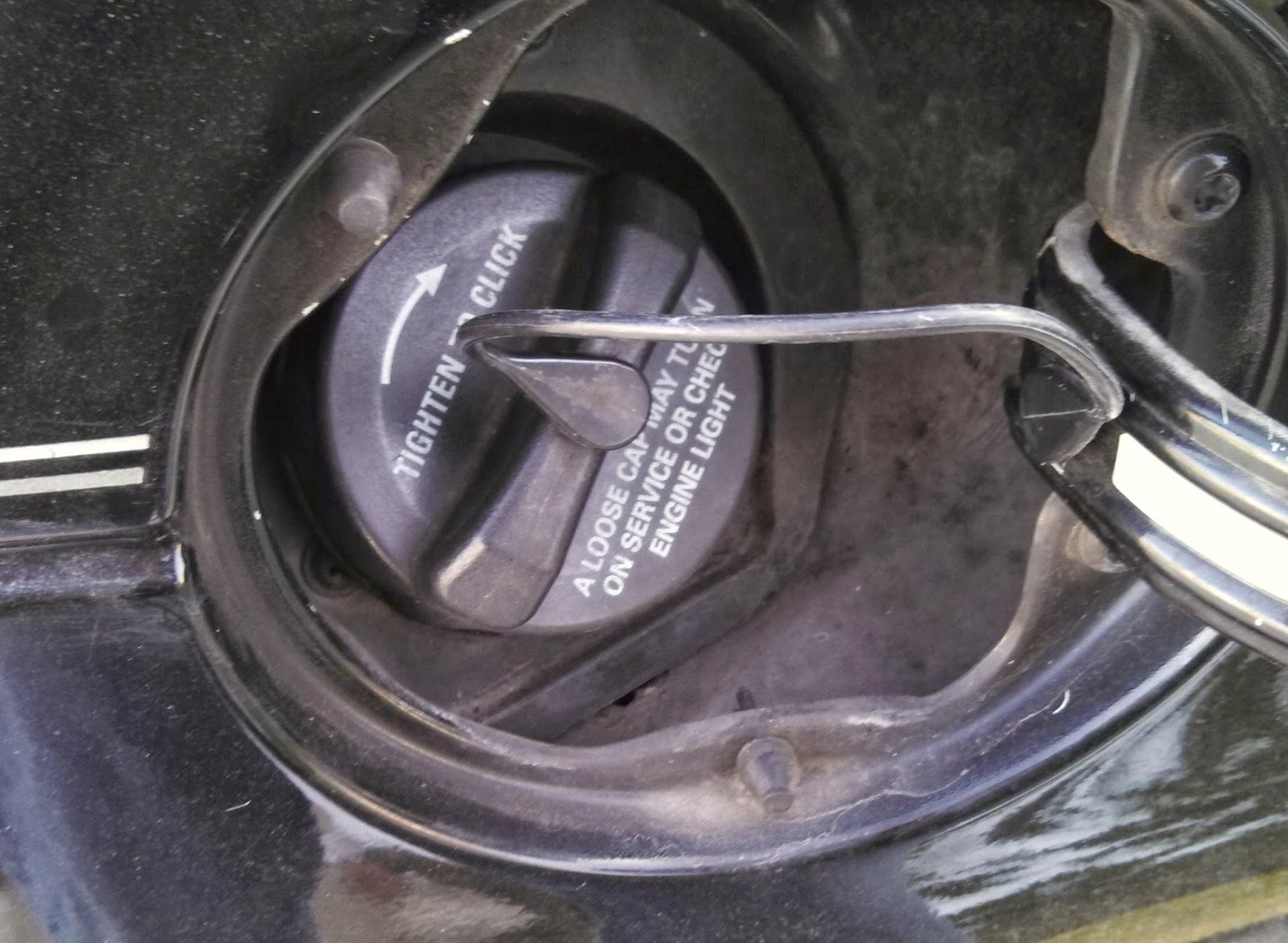That Pesky Engine Light: Is Your Gas Cap the Culprit?
Your car's dashboard suddenly illuminates with that dreaded amber glow – the check engine light. Panic sets in. Is it something catastrophic? Before visions of costly repairs dance in your head, consider a surprisingly common and often overlooked culprit: your gas cap. Yes, that seemingly simple twist-off component can be the source of your automotive angst.
The connection between a faulty fuel cap and an illuminated check engine light might seem counterintuitive. After all, it's just a cap, right? However, this small part plays a crucial role in maintaining a sealed fuel system, preventing fuel evaporation, and ensuring optimal engine performance. A loose, damaged, or missing gas cap can disrupt this delicate balance, triggering the onboard diagnostic system (OBD-II) to flag a problem.
The OBD-II system, mandated in vehicles manufactured since 1996, acts as a vigilant watchdog, constantly monitoring various engine parameters. One of its key functions is to detect leaks in the evaporative emissions control system (EVAP). This system is designed to capture fuel vapors and prevent them from escaping into the atmosphere. A compromised gas cap creates a leak pathway, allowing these vapors to escape and setting off the check engine light.
The history of the gas cap parallels the evolution of the automobile itself. Early vehicles utilized simple vented caps, allowing fuel vapors to vent directly into the atmosphere. As environmental concerns grew, so did the need for a more sophisticated approach. The introduction of the EVAP system in the 1970s marked a significant shift, necessitating the development of sealed, pressure-tight gas caps to maintain system integrity.
Understanding the importance of a properly functioning gas cap is key to preventing unnecessary repairs and reducing emissions. A loose cap allows fuel vapors to escape, contributing to air pollution and potentially impacting fuel economy. A damaged cap can also allow contaminants to enter the fuel tank, potentially affecting engine performance. A missing cap, of course, leaves the system completely vulnerable.
If your check engine light illuminates, and you suspect a gas cap issue, the first step is to visually inspect the cap. Is it securely tightened? Are there any visible cracks or damage? If the cap appears damaged, replace it immediately. If it simply seems loose, tighten it firmly. After tightening or replacing the cap, drive your vehicle for a few cycles. In many cases, the check engine light will turn off on its own once the OBD-II system detects that the leak has been resolved. However, if the light persists, it's essential to have the vehicle diagnosed by a qualified mechanic to rule out other potential issues.
Benefits of a properly secured gas cap:
1. Reduced emissions: Prevents fuel vapors from escaping into the atmosphere.
2. Improved fuel economy: Prevents fuel loss due to evaporation.
3. Prevents check engine light illumination: Avoids unnecessary diagnostic costs and potential repairs.
Troubleshooting checklist:
1. Is the gas cap tightly secured?
2. Is the gas cap visibly damaged?
3. Has the check engine light remained illuminated after tightening or replacing the cap?
Advantages and Disadvantages of Checking Your Gas Cap
(No real disadvantages to checking your gas cap)
Best Practices:
1. Always tighten the gas cap until you hear several clicks.
2. Inspect the gas cap regularly for damage.
3. Replace a damaged or lost gas cap immediately.
4. Don't overtighten the gas cap, as this can damage the threads.
5. If the check engine light persists, consult a mechanic.
Frequently Asked Questions:
1. Can a loose gas cap cause the check engine light to come on? Yes.
2. Will tightening the gas cap turn off the check engine light? Possibly, if the loose cap was the sole trigger.
3. How long does it take for the check engine light to reset after tightening the gas cap? This can vary, but typically within a few driving cycles.
4. How much does a replacement gas cap cost? Relatively inexpensive, usually under $20.
5. Can I drive with a loose gas cap? It's best to tighten it as soon as possible to prevent emissions and potential fuel loss.
6. What if the check engine light stays on after replacing the gas cap? There might be another underlying issue, consult a mechanic.
7. Can I damage my car by driving with a missing gas cap? Yes, contaminants can enter the fuel system.
8. Where can I buy a replacement gas cap? Auto parts stores, online retailers, or dealerships.
In conclusion, while a glowing check engine light can be a source of anxiety, it's important to remember that the cause isn't always complex or costly. The humble gas cap, a frequently overlooked component, can play a significant role in triggering this warning. Regular inspection and proper maintenance of your gas cap can prevent unnecessary repairs, reduce emissions, and ensure optimal engine performance. By understanding the connection between the engine light and gas cap, you can take control of your vehicle's health and avoid unnecessary stress. So, the next time that amber light illuminates your dashboard, before you panic, check your gas cap. You might be surprised at the simple solution. Remember, maintaining a properly sealed fuel system contributes to a healthier environment, a healthier vehicle, and a healthier wallet. Don't underestimate the power of that small, but mighty, gas cap!
Queens of twang celebrating female country singers from the 1950s
Did your horse cross the finish line first the pmu quinte results are in
Liberty tree and landscape












